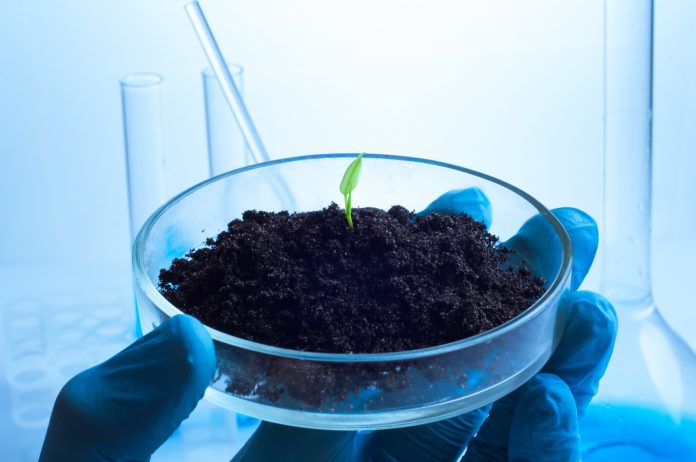The European Plant Science Organisation (EPSO) reveals its thoughts on the value of plant science and the many improvements it can generate in areas such as sustainable agriculture, forestry and environmental conservation
Plant science can generate improvements in sustainable agriculture, forestry, environmental conservation, biodiversity protection and climate action, as well as in the production of nutritious food and plant-based non-food products – such as paper, timber, chemicals, energy and pharmaceuticals. In addition, plant research has the ability to advance other branches of science. Medel’s law (a core of classical genetics and inheritance) and gene silencing (utilised in medicine and broadly used in research) are only two of numerous examples of contributions of plant science to biology. Sadly, plants are still largely underappreciated.
The European Plant Science Organisation (EPSO) aims to improve the impact and visibility of plant science in Europe. Its top priorities are to coordinate research activities at the national and European levels and beyond, to facilitate the understanding of plant science, and to provide advice on science policy towards a strategic approach and critical mass funding for basic and applied research.
EPSO hosts international conferences for plant scientists to promote networking and facilitate collaboration across countries and disciplines, which is key to advancing scientific research. Another important component of EPSO is its international Working Groups that bring together experts in different areas of research to generate shared learning, ensure best practice and build consensus on policy positions. They further consider how the knowledge generated by EPSO researchers can contribute to the society. For instance, the Agricultural Technologies Working Group focuses on science contributions to plant breeding sector, with a growing number of human population and changing environment being at the forefront of challenges of modern agriculture.
We believe that basic plant research can fuel innovations useful to the society, such as innovations within sustainable plant breeding sector. One of the persisting problems threatening the fields are pests and plant diseases, which often require extensive sprays (with pesticides, fungicides, etc.) to manage. Plant scientists across Europe and beyond have been looking for solutions to tackle this problem. To date, dozens of plant disease resistance genes against pathogens have been identified, all of which can be utilised in the field to reduce yield loss and spray use. Successful examples include resistance against devastating rice blast and potato late blight diseases, to name just a few. Likewise, understanding basic plant developmental or biochemistry processes can help in generating plants that produce a higher yield or are free from common plant allergens, such as gluten.
Notably, plant science provides critical research insights that can help inform innovations and policies that affect all areas of our lives and thus all 17 of the 2016 UN Sustainable Development Goals (SDGs). Plant science has the power to restore lost diversity among crops leading to higher yield with a lower environmental footprint, and resilience to extreme environmental conditions, such as adverse soil conditions and higher nutritional value – all of which support the ambition for Zero Hunger (SDG2) and Good Health and Wellbeing (SGD3). Evaluating the capacity of soils and forests to absorb carbon and, subsequently, limit global warming can enhance Climate Action, SGD 13. Monitoring the effects of the exploitation of natural resources and habitat degradation on biodiversity can help inform policies on sustainable resource use, which contributes to the success of SDGs 14 and 15, Life Below Water and Life on Land, respectively.
Yet to conduct cutting-edge research and achieve those goals scientists need investment. Sadly, plant research has been massively underfunded compared to other science disciplines, with plant research proposals often being overlooked. More equal funding would generate greater overall benefits for society. EPSO promotes plant science and campaigns for a higher appreciation of the value of plant research among funding bodies
We are also dedicated to popularising plant science among the general public. Through public engagement events, we aim to raise awareness of the relevance of plants to health, the environment and the global economy and to improve public understanding (and correct misconceptions) on topics such as new breeding technologies and gene editing. We also hope to attract young curious minds to pursue a career in plant research in the future. With these aims, EPSO organises a biennial Fascination of Plants Day (FoPD) – a worldwide public engagement initiative in which volunteers run local and national community events celebrating plants and plant science. In addition, EPSO further advocates for evidence-based and plant science-friendly policies through its EPSO and FoPD social media accounts, which collectively cover both lay and expert audiences.
We believe that public engagement is a key part of research dissemination that enhances public under- standing of plant science and improves the dialogue between researchers and the public. It is crucial for the future funding of their research that plant scientists communicate the value of their work for the daily lives of people. We hope that as people and funding bodies better appreciate the benefits of plant science, funding for it will increases.
EPSO currently brings together more than 200 research institutes, departments and universities from 30 countries in Europe and beyond, and Fascination of Plants Day hosts over 1000 public engagement events across 51 countries. Over the years, we have been able to establish collaborations that led to ground-breaking discoveries and improved impact and visibility of plant science. We will continue this international cooperation to further advance plant science and ensure that the opportunity cost to society of better investing in plant science is not lost.
Carmel Edwards, Publications Officer
Aleksandra Bialas, Policy & Comms Assistant
European Plant Science Organisation (EPSO)
Tel:+3222136260











